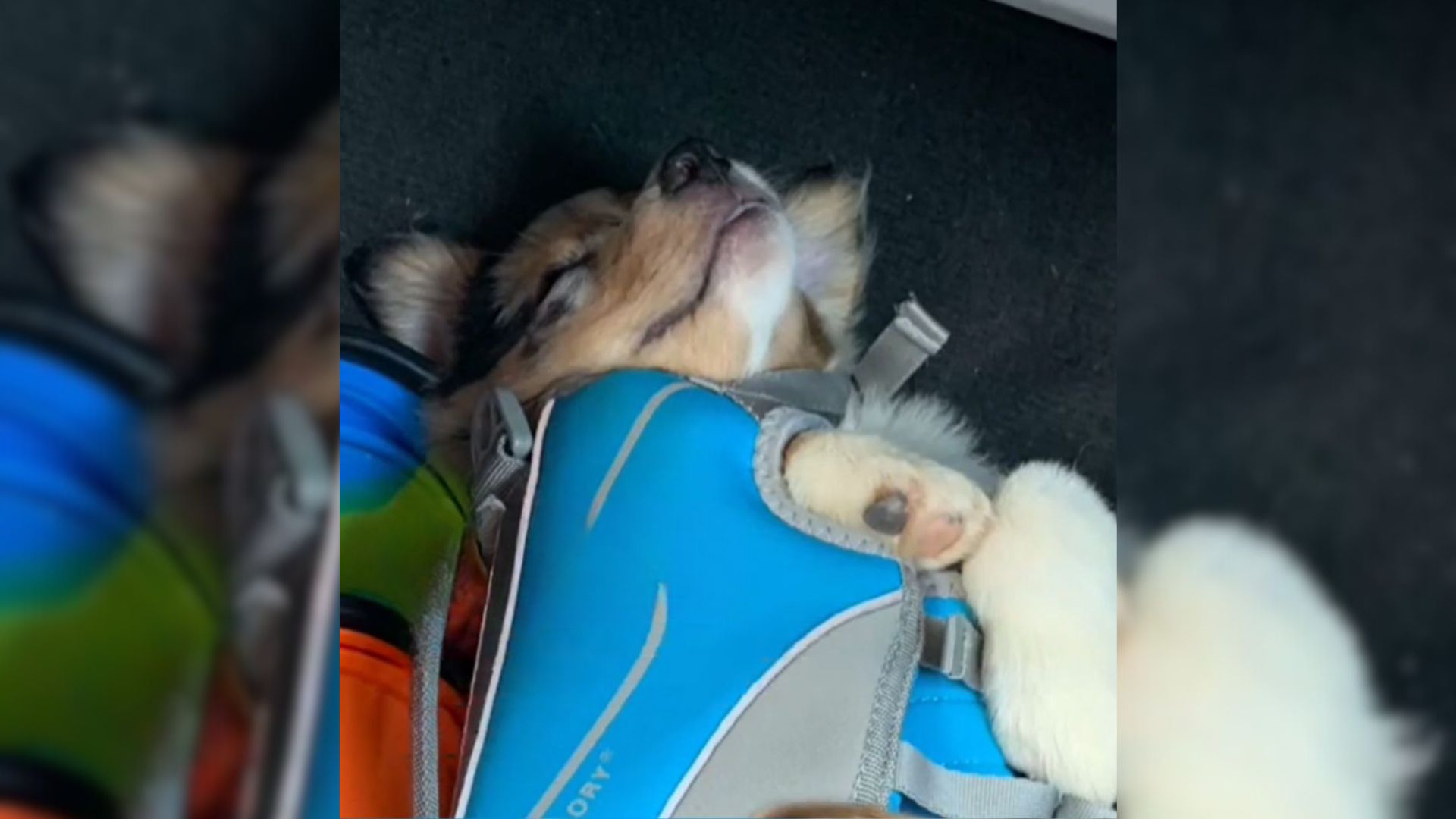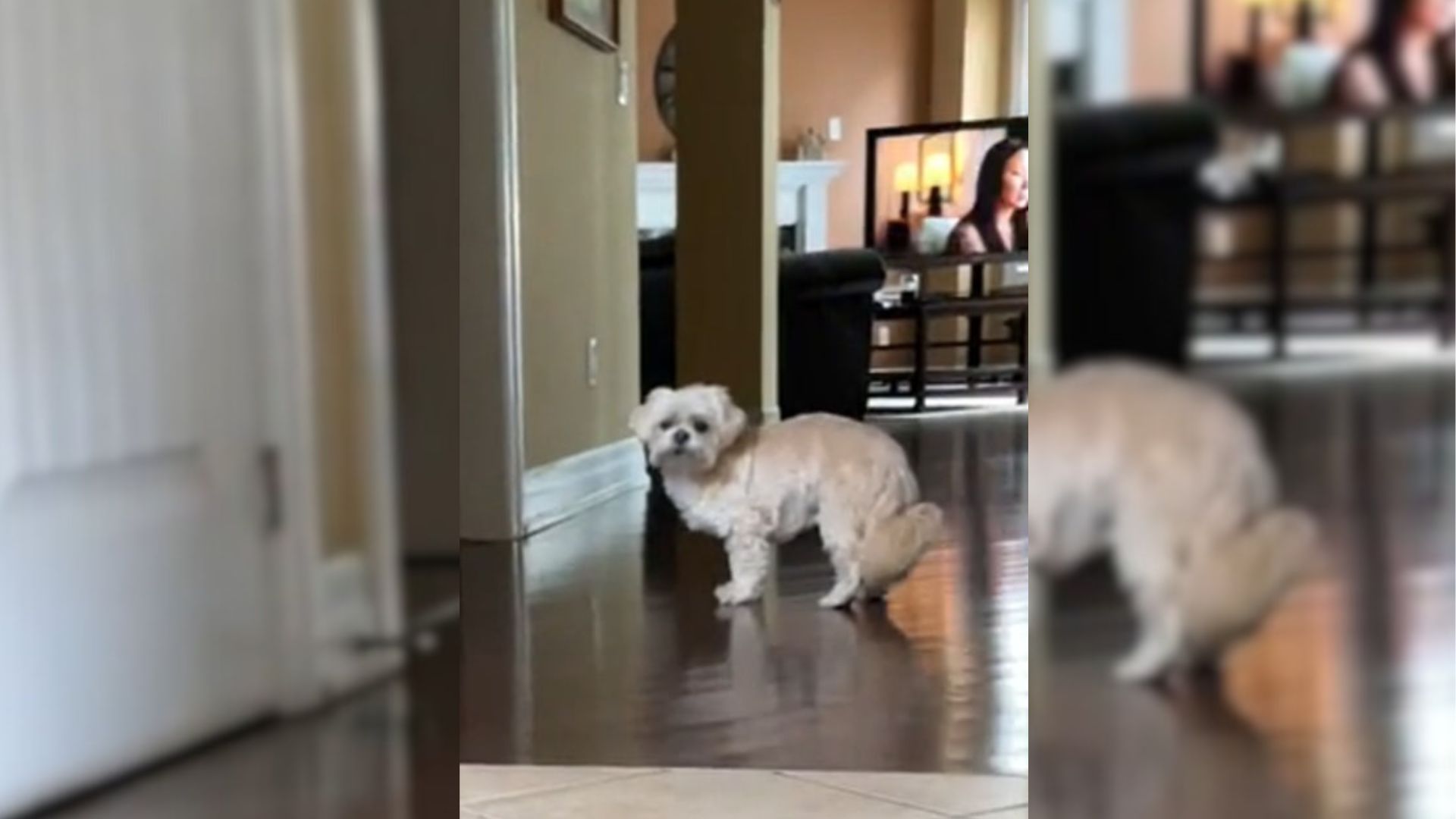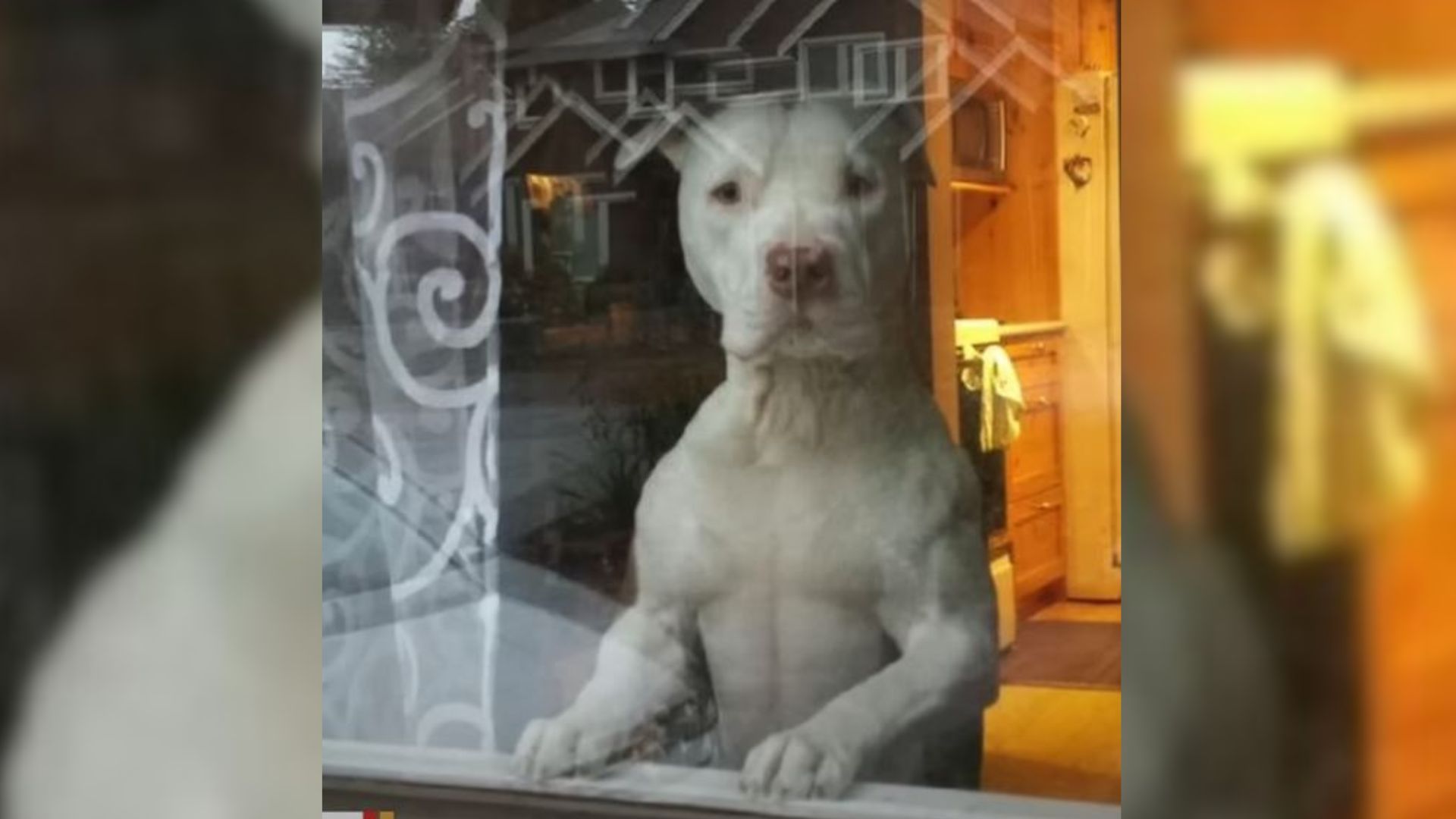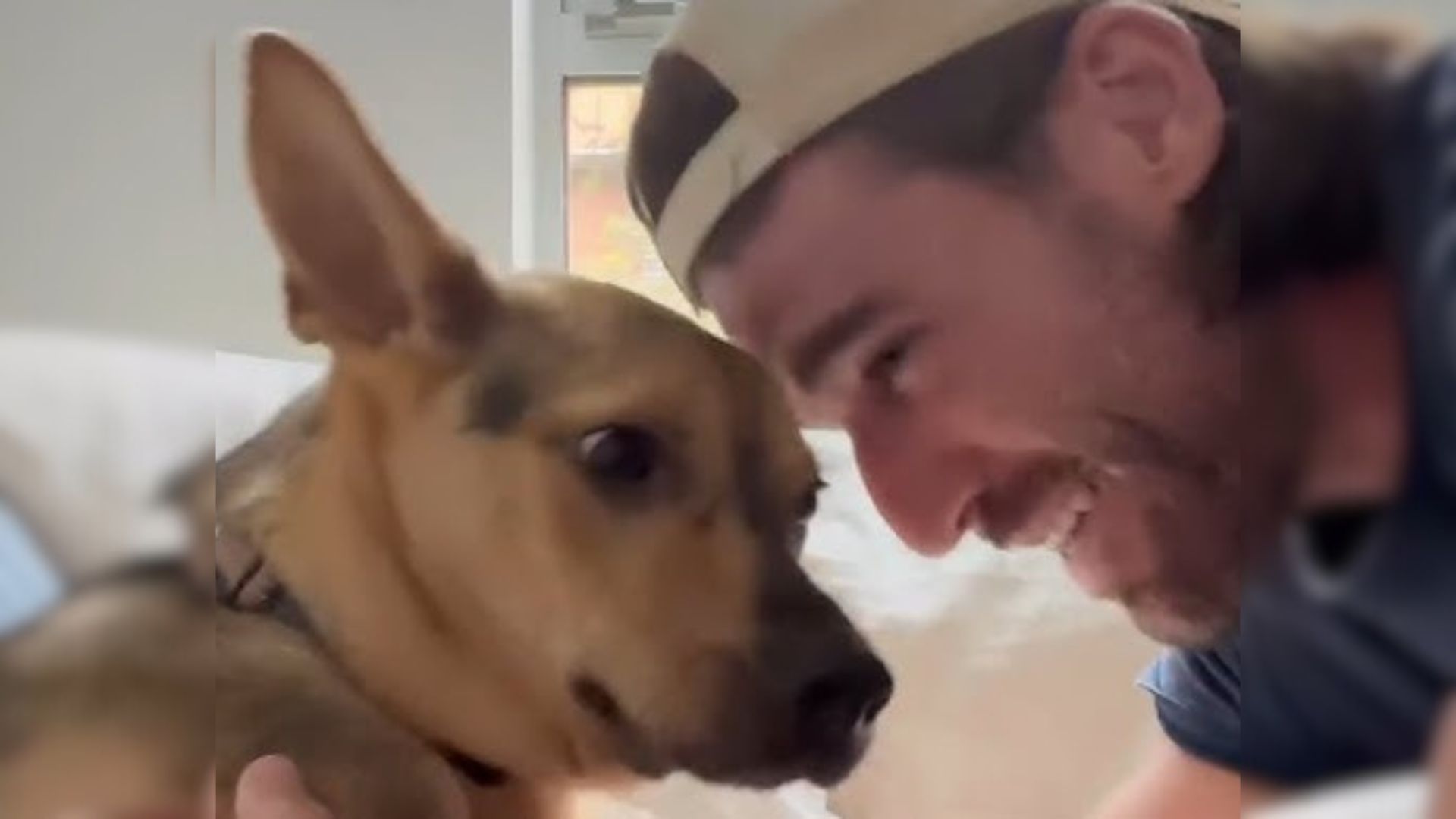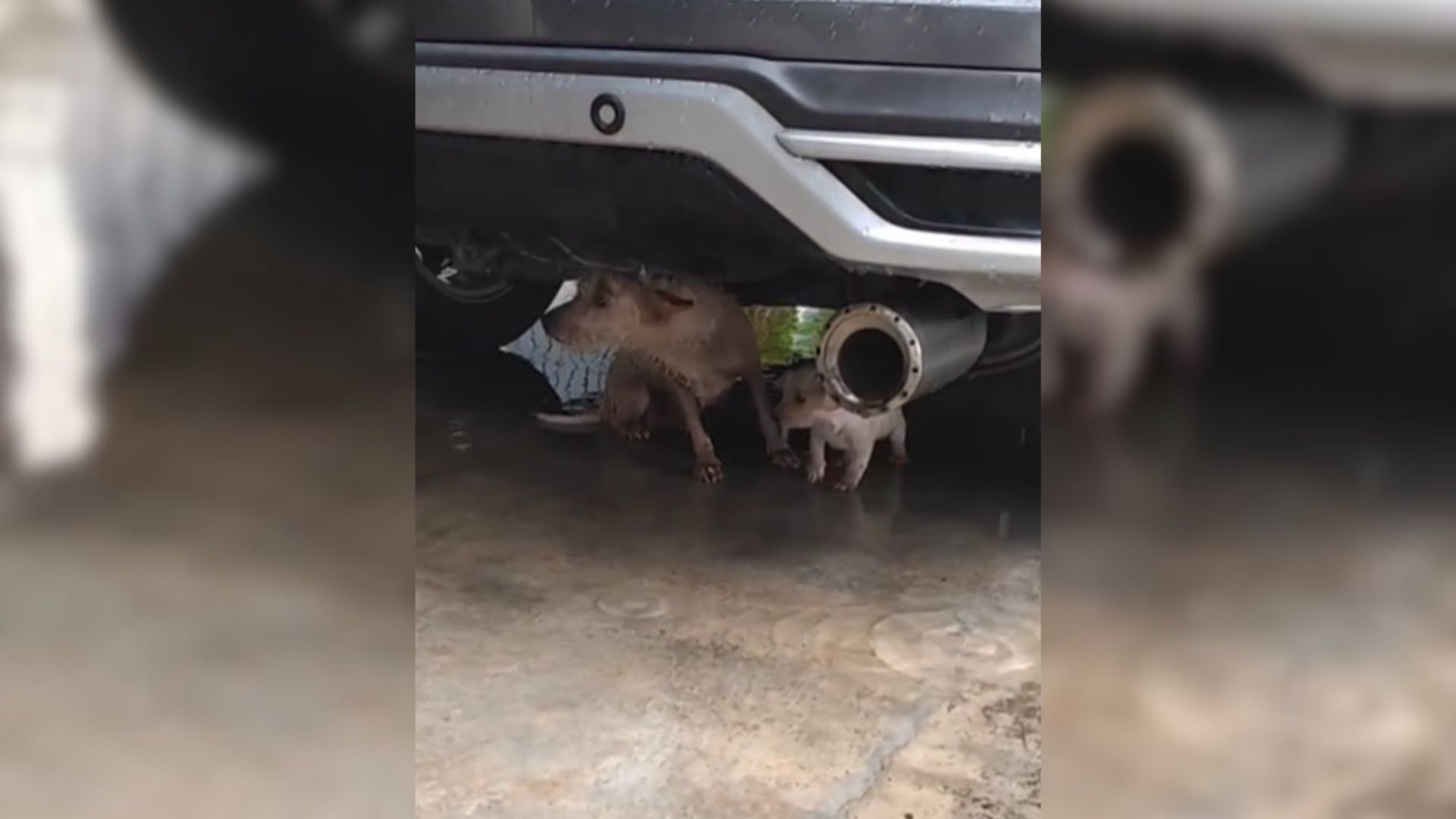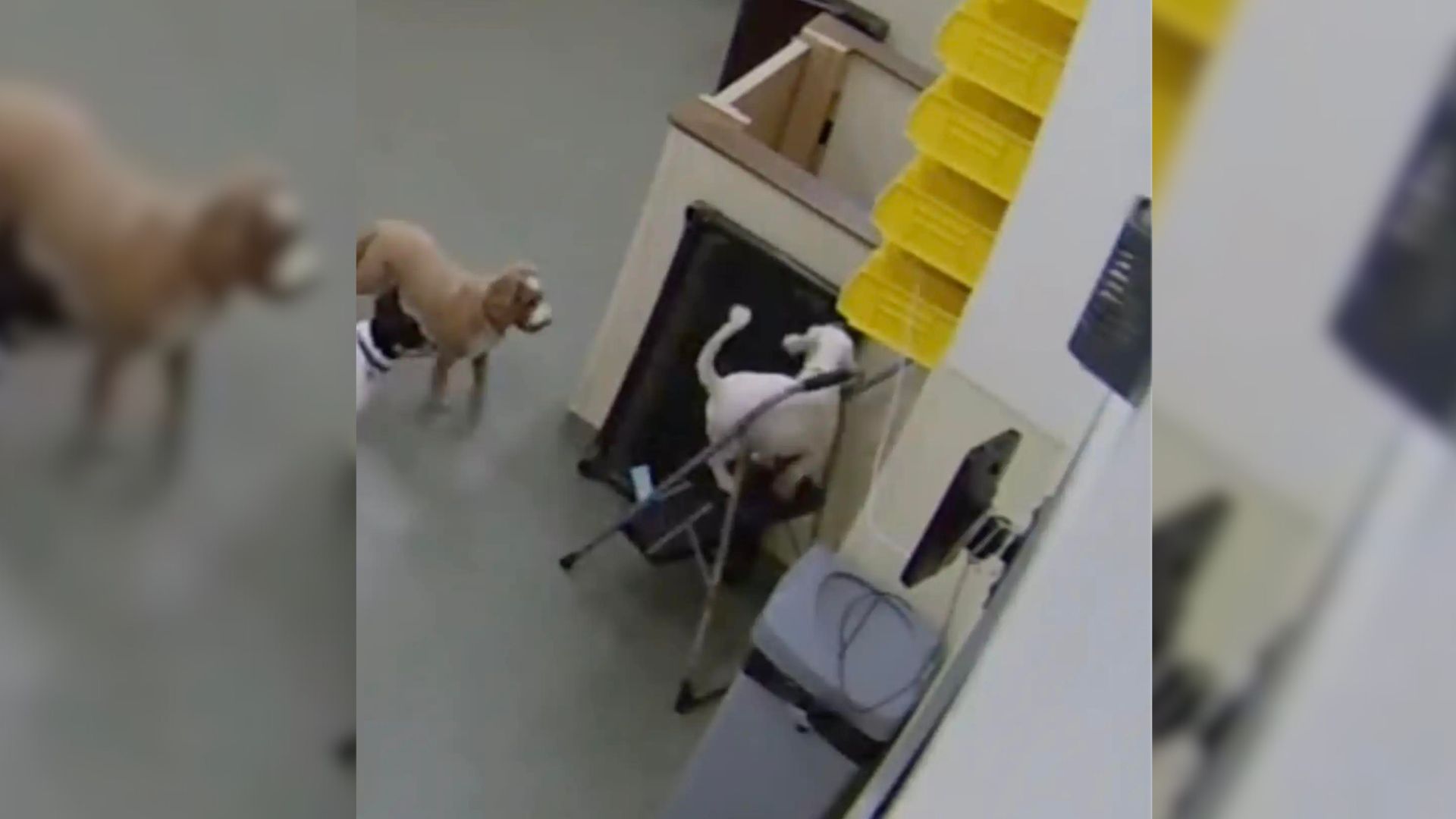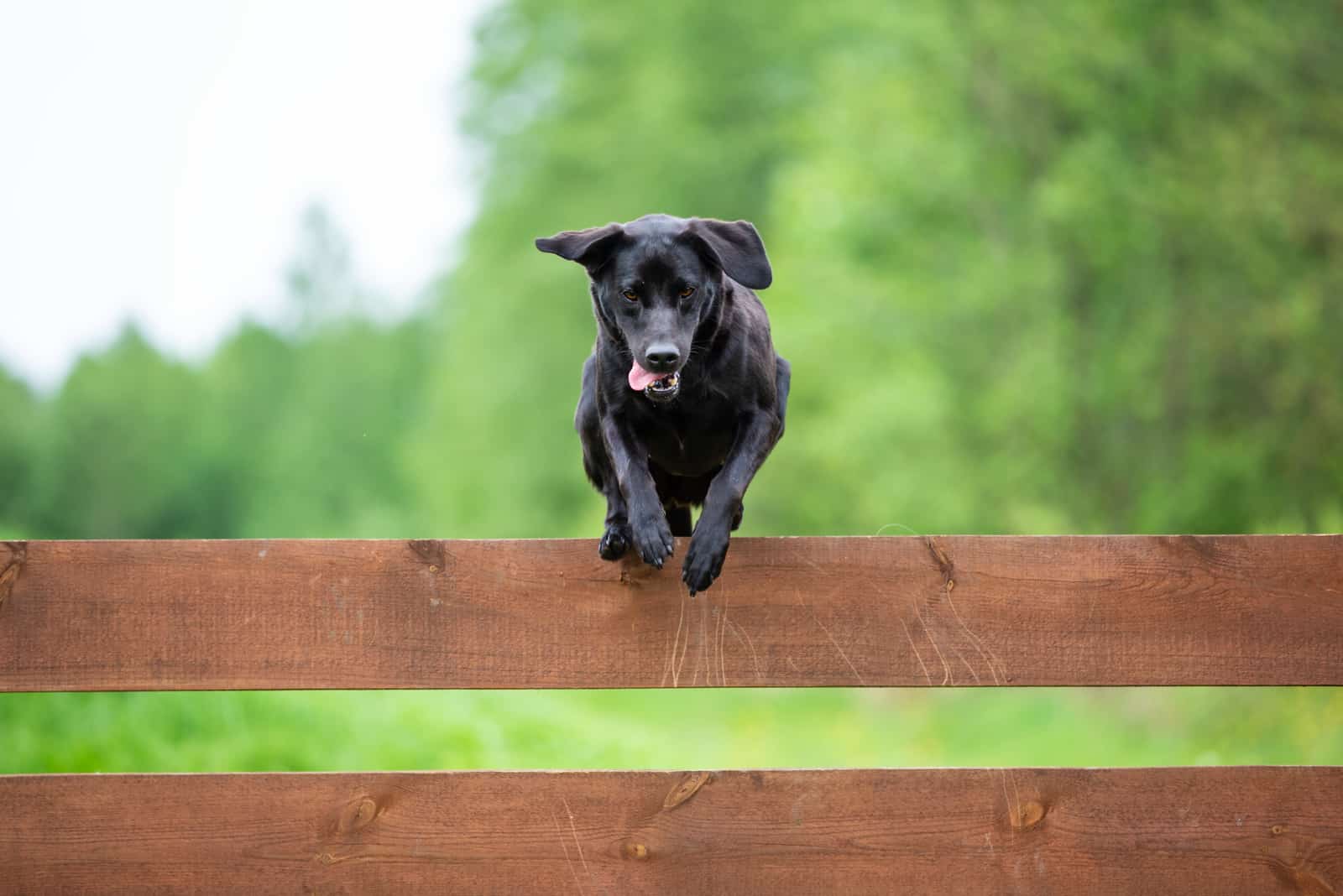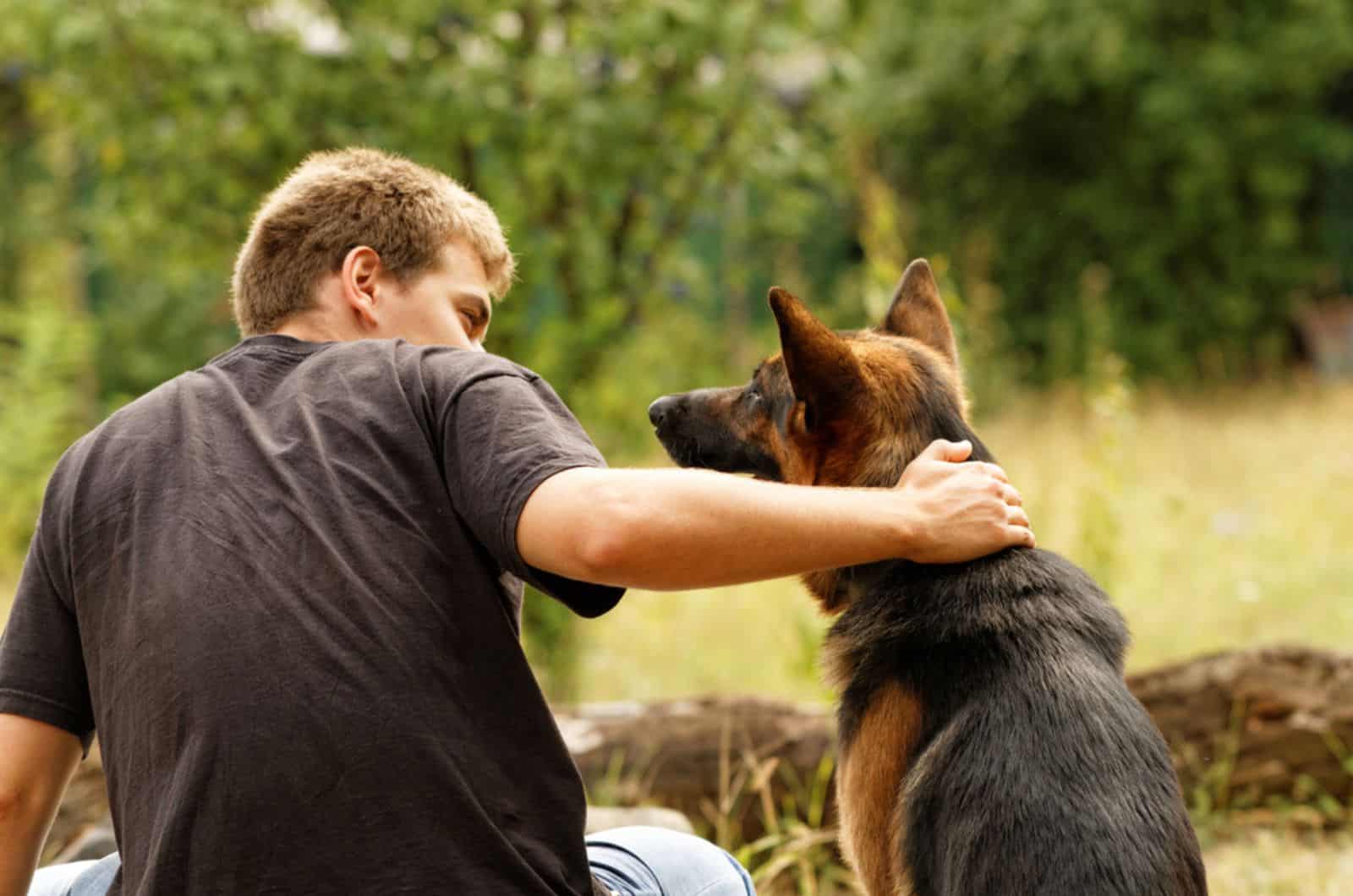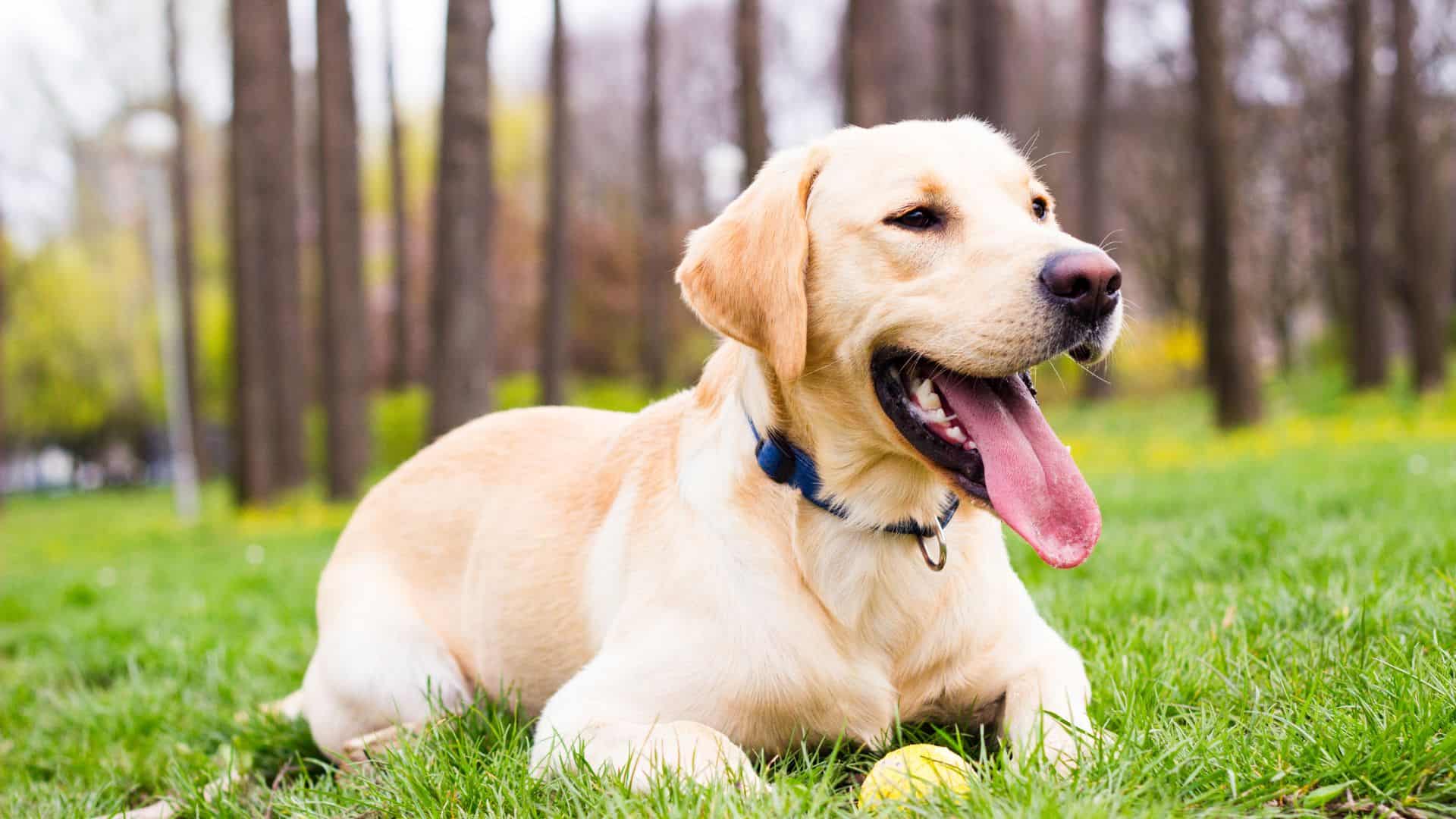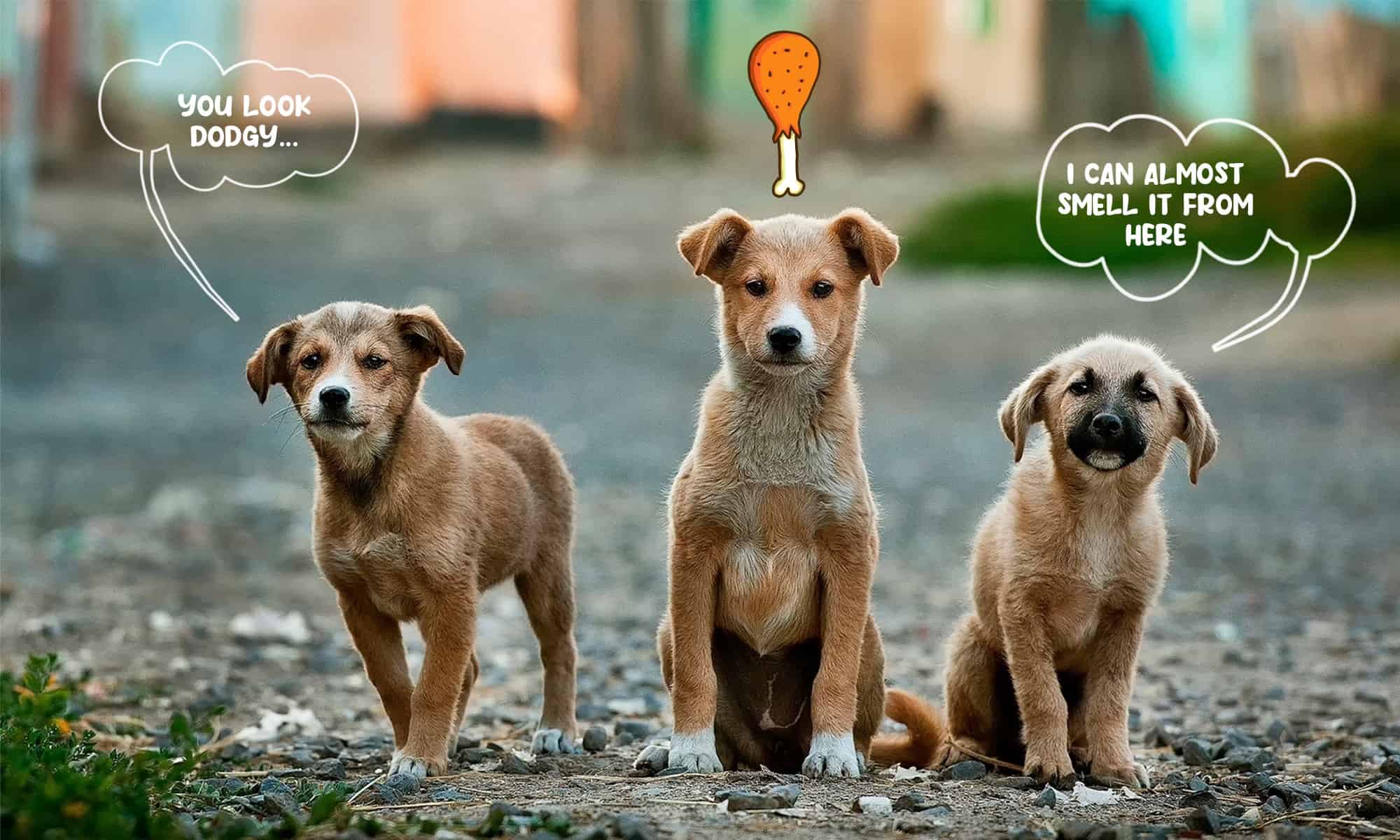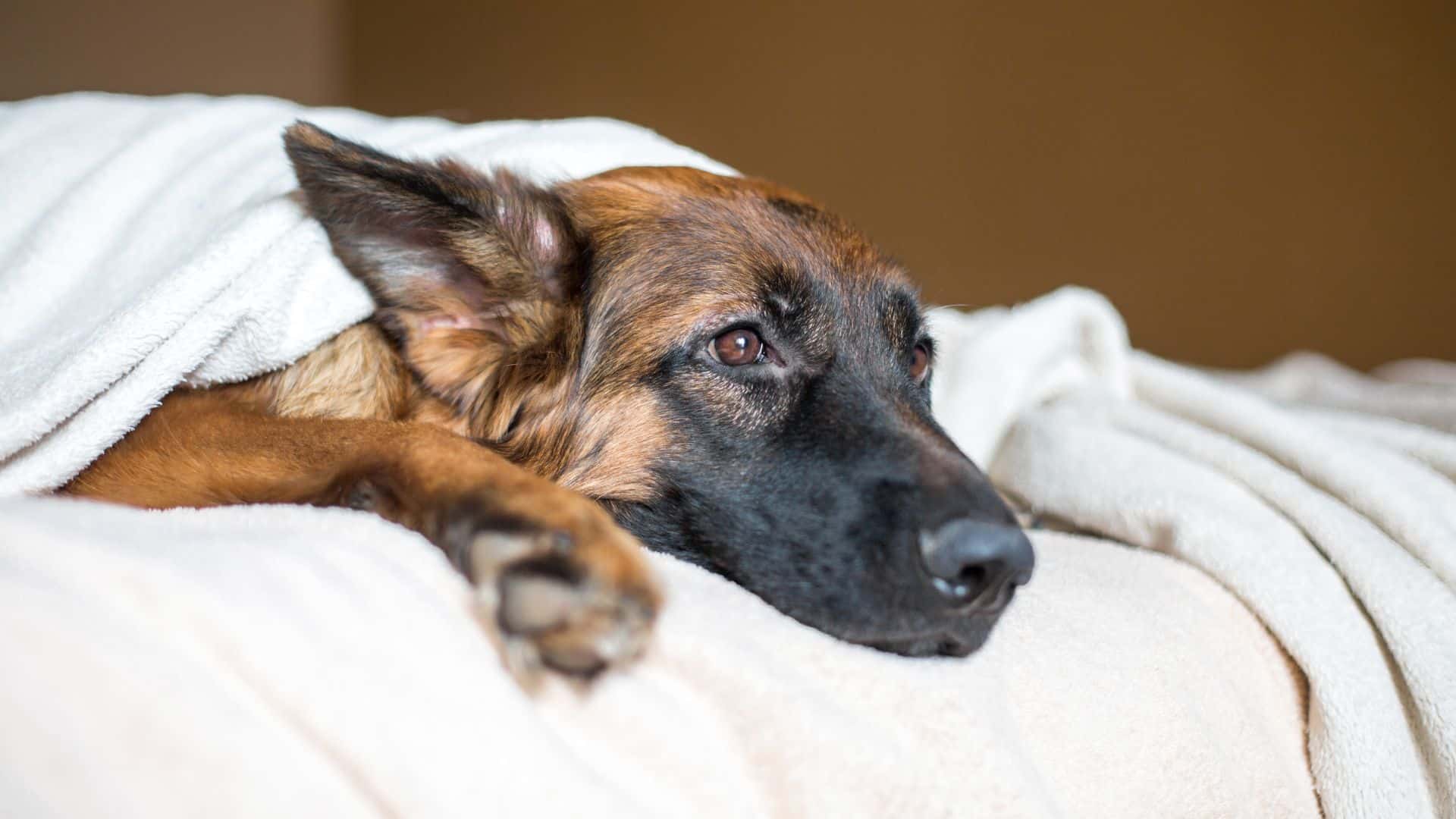Do you have a velcro dog? It’s not uncommon as our furry friends are built to make strong attachments to their humans. It’s a bond that was created thousands of years ago when the packs of wild wolves that followed hunter-gatherer communities were first domesticated.
However, it could be that your dog has suddenly become more clingy than ever, and this can be a problem. We’re going to examine some of the possible reasons for clingy behavior and suggest a few things that might help you to deal with this and answer the question, why is my dog so attached to me all of a sudden?
Puppies And Clingy Behavior
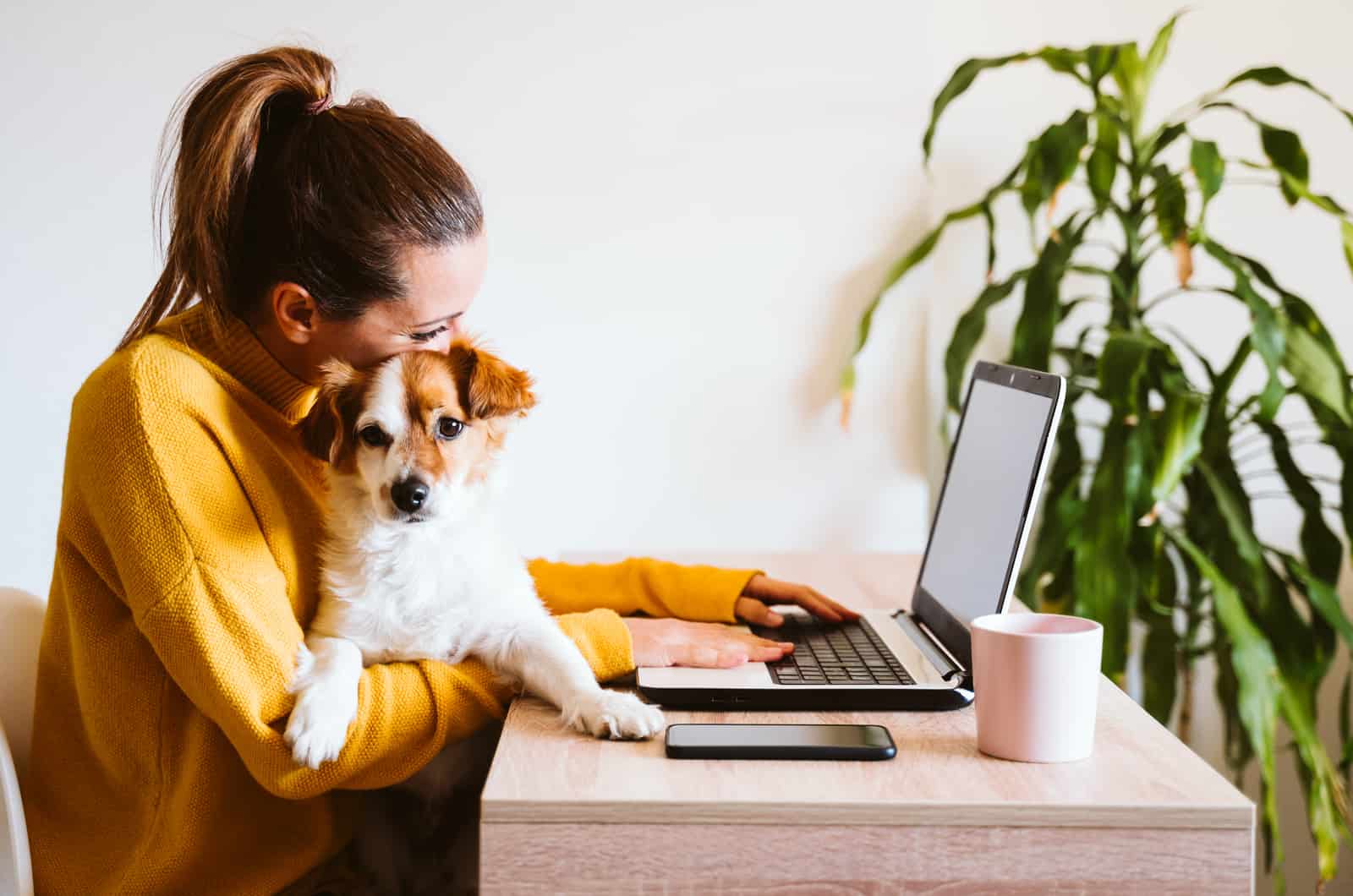
Why is my dog so attached to me all of a sudden? Is your dog a puppy? Then there might be a good reason for his clinginess.
Unlike human babies, pups develop very quickly. They can be independent of their mother around 8 weeks of age. With humans, this phase lasts for several years (or decades, in some cases!) as we develop slowly, needing the care and support of our parents for much longer.
Puppies should never be released before the 8-week mark, and many reputable breeders extend this to 10 or even 12 weeks to make sure that the bond between the mother and pup is severed naturally. The weaning process is an essential part of this, and it should always be allowed to happen in its own time.
During these few weeks, the mother dog teaches the pup valuable lessons. She disciplines them when they step out of line, and she is assertive rather than aggressive. She teaches them how to behave, makes sure that they don’t play too rough, and when the time is right, she encourages them to become independent.
When pups reach their new homes, you take the place of the mother. Even though they are ready to leave the litter, they still miss their siblings and their mom.
Some breeders help by sending the pup home with a blanket or toy with the mom and sibling’s scent on it. Even so, this can still be a relatively traumatic period for the pup as it settles into its new home.
This is only to be expected, and you can help by giving your puppy a lot of love and affection, as this will form a strong bond and help them cope.
However, if your pup initially settled in well but has suddenly developed clingy behavior, then it could be that something else is bothering him. Is he teething or in pain? Does he seem anxious or afraid? It’s tricky, as you and your new pup are just getting to know each other.
You can settle an unhappy pup that cries at night by moving his dog bed closer to yours. However, it’s good for the pup to learn to be independent.
It’s a balancing act for pet parents, as you need to give them the right amount of attention, but they must learn that there will be times where they are alone. If they don’t get used to this as they develop, then there’s a fair chance that they will be extremely clingy when they’re older.
Why is my dog so attached to me all of a sudden? It may be a puppy that’s missing its mom and litter-mates. It may be that they are going through natural puppy stages, such as teething. They might be lonely at night or in pain because of panosteitis, otherwise known as ‘growing pains.’
How do you deal with it? If your puppy is very new, give it time to settle in. Obedience training, plenty of exercise, and vigorous playtime are all good ways of burning your pup’s energy and helping them to develop mentally and physically. Once they are through the teething stage and have grown a little, they shouldn’t be in pain unless they are sick.
Make sure to show them affection, with lots of cuddles to make them feel safe and loved, but try to encourage independence. Teach them to stay in their bed while you are present in the home. Then get them to stay in place while you walk away, and increase the distance each time until you are no longer in the room. Then progressively increase the length of time.
Be sure to reward them when they comply, as this boosts the learning process.
It is vital to desensitize them to your departure at an early age, or you’ll surely run into problems when they’re older. And this leads us to our next heading.
Separation Anxiety
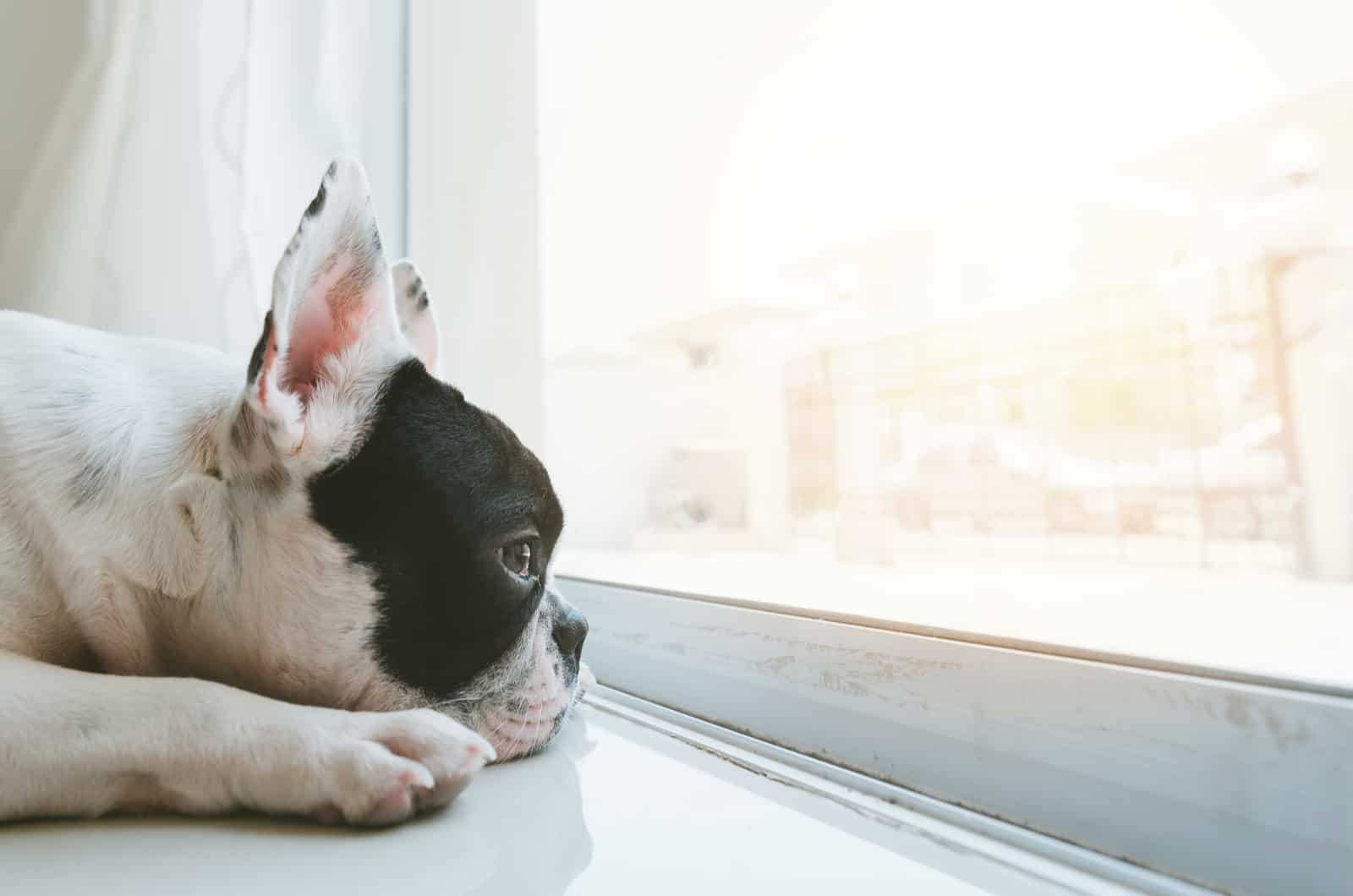
Why is my dog so attached to me all of a sudden? Possibly due to separation anxiety. This is probably the number-one reason for a dog’s clinginess, and it can be a real problem for dog owners.
It’s worse in some breeds than others, with Labradors topping the list, followed by Border Collies, Jack Russells, German Shepherds, and the Cavalier King Charles Spaniel. New dogs and rescue dogs will be especially prone to anxiety as they are still coming to terms with what’s going on.
Maybe you have just recently started leaving your puppy home alone.
The thing is, most dogs are social animals that love the company of humans. It’s a fact: you are their world, and they miss you when you’re not around. As sweet as this is, it means that you could be in for troubled times ahead.
You see, a lot of dogs are super-sensitive. They pick up on moods, and it shows in their behavior. They quickly develop strong attachments to their owners and become upset and unsettled when the status quo is disturbed.
This is partly due to them being pack animals. They’re designed to be in groups, not to be left on their own for hours at a time.
The problem with severe cases of separation anxiety is that your dog won’t like being left alone for even a short amount of time. You’ll notice them by your feet wherever you go around the house. You won’t even be able to visit the bathroom without them whining or scratching at the door! And when you do leave them home alone for several hours, you might return to find that your home has been rearranged.
Destructive behavior is one of the signs of separation anxiety, along with:
•Excessive barking/howling
•Digging (in the garden or yard, if they have access to one, or your houseplants!)
•Scratching at doors and windows
•Having accidents in the home, even though they are housetrained.
•Panting or drooling excessively
•Attempting to escape
•Pacing along the same route continually
You won’t see some of these behaviors, but you’ll notice the evidence left behind when you get home. It’s handy if you have a live-feed camera that connects to your smartphone, as this will let you observe them and see what they’re up to. Alternatively, you could set up a camera to record them while you’re gone, just to see what happens.
As is always the case when it comes to dogs, it’s never straightforward. Some of these types of behavior can indicate that your dog is sick, so you need to pay close attention and get them checked out for any health issues before assuming that they are suffering from separation anxiety.
If medical causes are ruled out, then your dog is probably acting up because it misses you. It’s important to realize that this is learned behavior. It isn’t usually something that happens overnight, and it tends to get progressively worse throughout the dog’s life if it’s not dealt with.
We asked, why is my dog so attached to me all of a sudden? The truth is, it’s probably been building for a while, but you haven’t noticed. Or maybe you haven’t seen all of the signs until recently.
There’s also a chance that your dog has been coping fine until now, but something has triggered these behavior changes. Dogs get used to a daily routine, and they don’t like it when this is altered. They react badly to upheaval, such as major life changes. The death or departure of a family member, moving house, a new pet, the death of a pet, the arrival of someone new in the home – all of these situations, and many others, are likely to increase your dog’s separation anxiety issues.
How do you deal with this? Of course, some changes are unavoidable, but you should try to avoid sudden change wherever and whenever possible. Introduce new things as slowly as you can to give your pooch time to adjust.
To make things easier, try not to draw too much attention to yourself when you leave the house. Make it a normal act, without any fuss or noise. If you can, take your dog for a walk or let them run around the yard to let off some steam before you leave. They’ll probably settle down for a snooze while you’re out.
When you’re sitting at home, get up for no reason and pick up your keys or put on your coat or shoes without heading out. These are usually sure signs that you’re leaving, at which your furry pal gets all agitated because they don’t want to be left behind. Your dog will soon learn that these actions are quite normal, and it won’t upset them.
While you are out, leave plenty of toys for your dog, including puzzles filled with treats. You could also leave a radio or TV on for some background noise, which should help to calm them down. A piece of clothing that you’ve been wearing recently might help, as they will be comforted by your scent. If your dog seems particularly bad, then you might want to ask your vet for some medication to calm them.
Dog sitters or dog walkers can help reduce the amount of time the dog is alone, which will be a great help.
And when you return home, don’t make a big fuss! This is a sure way to draw attention to the fact that you’ve been out for a while.
Yes, it’s a tough one, as your best friend will be ridiculously happy to see you. Having said this, they’re also ridiculously happy to see you when you return home from a 5-minute trip to the store down the road to get milk. However, it’s worth the effort in the long run. As hard as it will be, try to ignore them just for five minutes until they calm down. Then you can cuddle them and give them a treat to show how much you love them.
Dog behavior can often be changed through positive reinforcement, and they are so eager to please you that training them is relatively easy (although some breeds are harder than others).
It’s important to point out here that clinginess isn’t always associated with separation anxiety. Dogs can be clingy without panicking when you’re not there, which is essentially what an anxiety attack is all about. The key is to watch how they behave when you’re not there, which will involve some creative thinking or modern technology!
Why Is My Dog So Attached To Me While Pregnant?
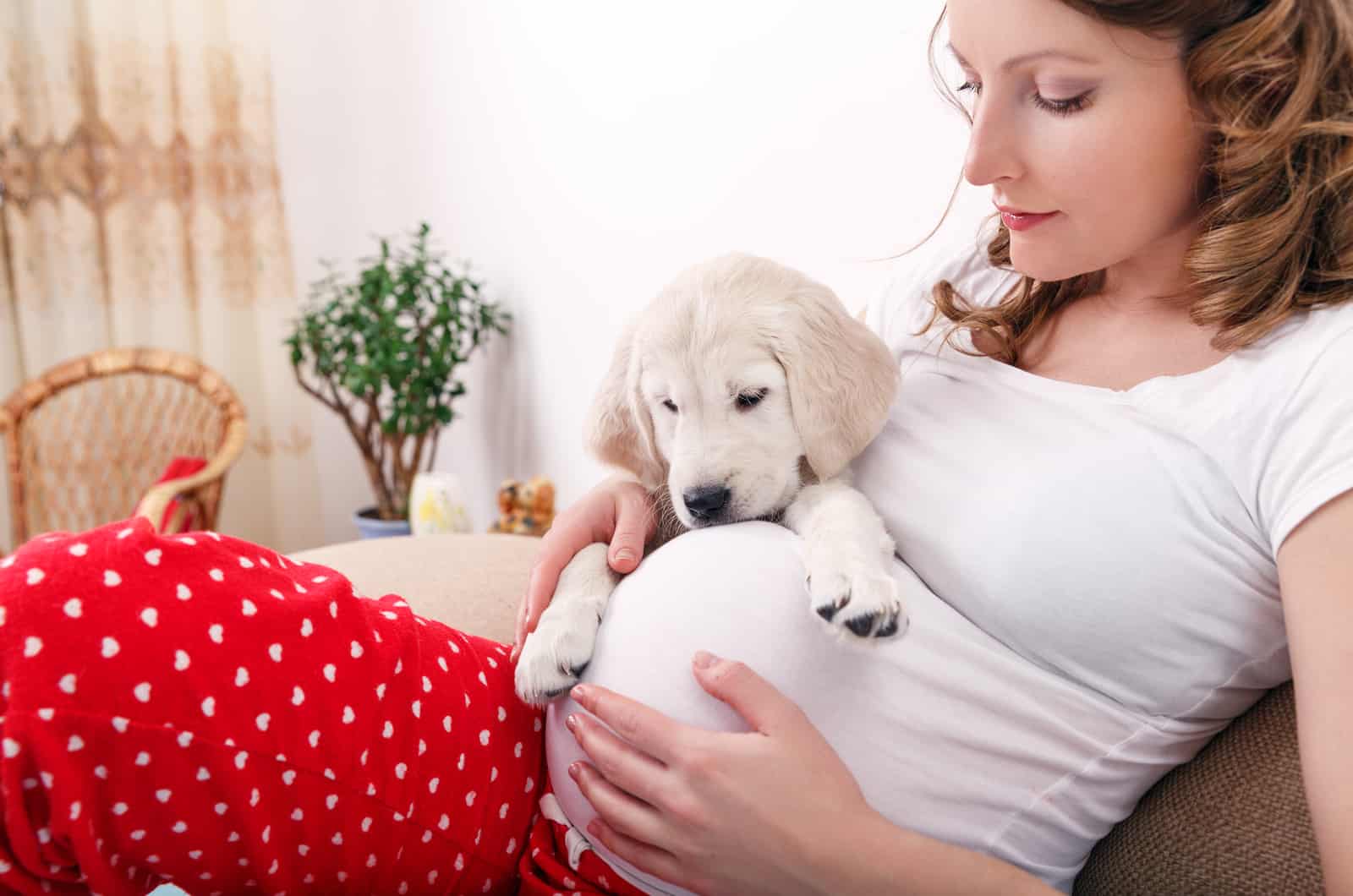
Probably because they realize that you are more vulnerable, and they are feeling more protective.
There’s a lot that scientists and animal experts don’t know or understand about dogs. For example, take their extraordinary sense of smell. It’s unclear whether it’s 10,000 or 100,000 times better than humans. And some experts argue that it’s even better than that. Some dogs can detect substances in concentrations of one part per trillion. That’s a single drop of liquid in twenty Olympic-sized swimming pools.
Then there are the countless tales of dogs that have saved lives by acting on impulse, well before the humans involved even knew there was any danger.
Dogs are even used these days to detect human diseases, such as malaria, tuberculosis, cancer, and diabetes!
So it should come as no surprise that your pooch has realized that you are pregnant, possibly before you even knew it yourself. Dogs can detect subtle changes in odor brought about by the production of certain hormones. They can also sense changes in your mood. It’s only natural that they would then feel protective of you.
Why is my dog so attached to me all of a sudden? If you’re a mother-to-be, then your dog might just be trying to protect you. This might happen any time during your pregnancy, but it often occurs in the later stages.
What should you do about it? If it’s not a problem for you, then there’s no need to worry. After all, there’s nothing wrong with some extra love and snuggles with your dog! However, if they really won’t leave you alone to the extent that it’s bothering you, then you might need to take action. Some women have found that it becomes difficult to walk their dogs during pregnancy.
They become so overprotective that they challenge everyone and everything in sight! They also started misbehaving, urinating in the house, and chewing on furniture. In these cases, it’s always best to get some assistance. Animal behaviorists can offer advice or suggest some training methods to help your dog feel calmer.
You can help by introducing changes gradually. Over the nine months of your pregnancy, you will be getting the house ready for the new arrival. Your dog will notice these changes and will perhaps wonder what’s going on.
There’ll be new items of furniture, clothes, fresh paint or wallpaper, carpets or rugs, toys – all of these new things, on top of the changes in your scent, the shape of your body, and the way you move can unsettle your furry friend. Take some time to reassure them and allow them to adjust.
They’ll soon be meeting your new arrival, which is a big thing for them as well as you, and this will go much more smoothly if they have been able to gradually accept the changes along the way.
Senior Dogs And Medical Issues
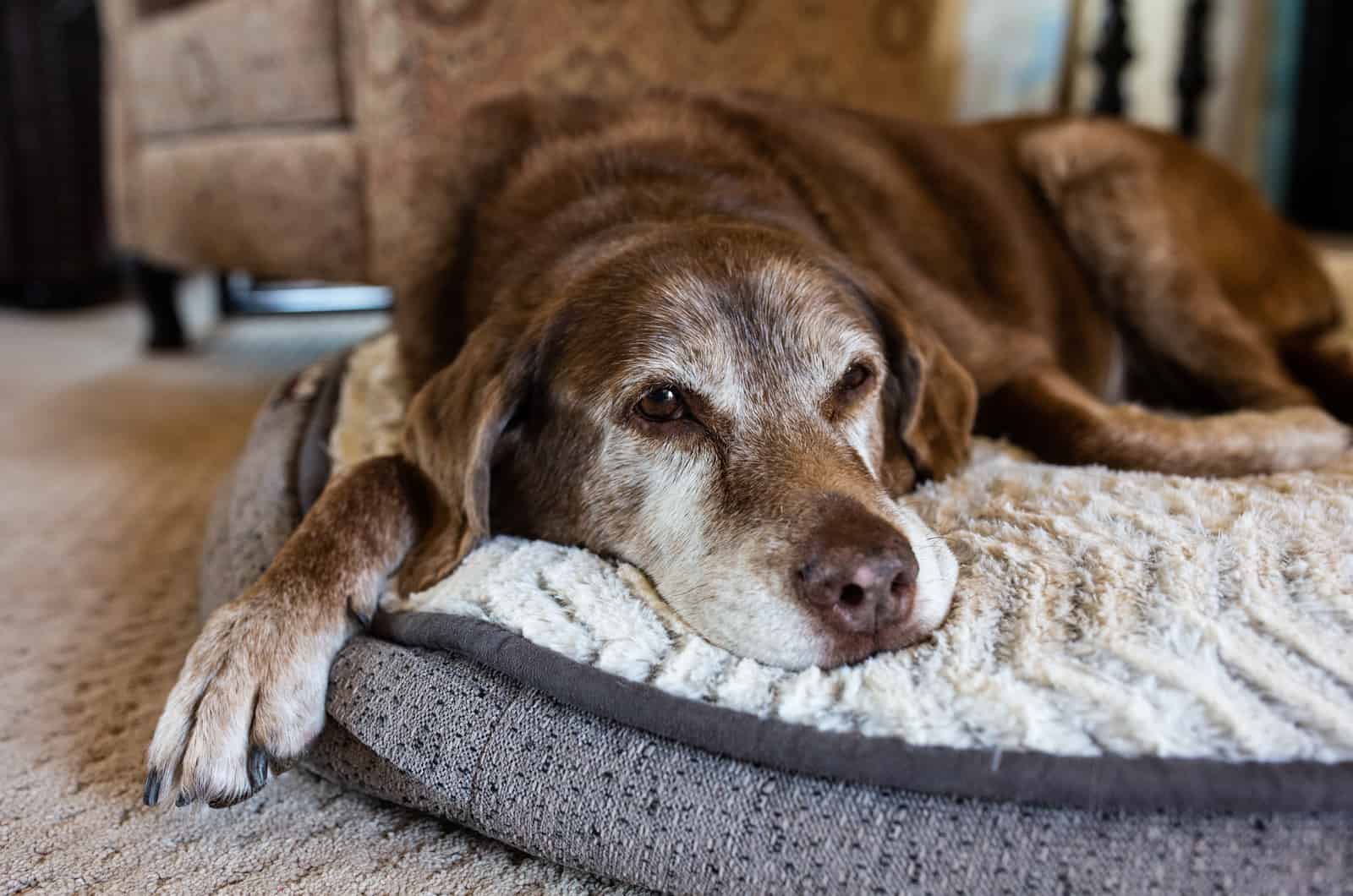
Why is my dog so attached to me all of a sudden? It could be due to their age or a medical problem.
So far, we’ve looked at puppies, separation anxiety, and pregnancy in our search for the answer to the question, why is my dog so clingy all of a sudden?
We now need to explore the possibility of medical issues, especially in older dogs.
Improvements in dog breeding methods, including health screening, mean that dogs are generally living longer. And while this is good news, it also has its negative points.
Because dogs are living longer, they are more prone to the problems associated with old age. One particular problem is dementia, which often reveals itself through a condition called cognitive dysfunction syndrome (CDS), which is similar to the human condition known as Alzheimer’s disease.
It’s by no means inevitable, but around 50% of dogs over the age of 11 years are diagnosed with CDS.
The symptoms vary but include a loss of appetite, lack of desire to play, confusion, irritability, and aimless wandering. You might also notice that your dog becomes very attached to you.
Other medical causes for clinginess include epilepsy, blindness, deafness, and estrus. This last one only relates to female dogs when they come on heat. You will notice other signs, such as her swollen vulva and perhaps spots of blood on the floor.
Why is my dog so attached to me all of a sudden? Sadly, it could be a sign of dementia. You need to have the condition assessed and try to ease your dog’s anxiety as much as possible. It may also be that your dog is anxious about losing its hearing or sight or because it is suffering from seizures. This can be a frightening experience for the dog, and they will need as much support as possible. Finally, a female dog on heat will go through hormonal changes that might make her clingy. The best solution for this is to have the dog spayed, as it will calm her down, eliminate any mood swings, and avoid any unwanted pregnancies.
So, Why Is My Dog Attached To Me All Of A Sudden?
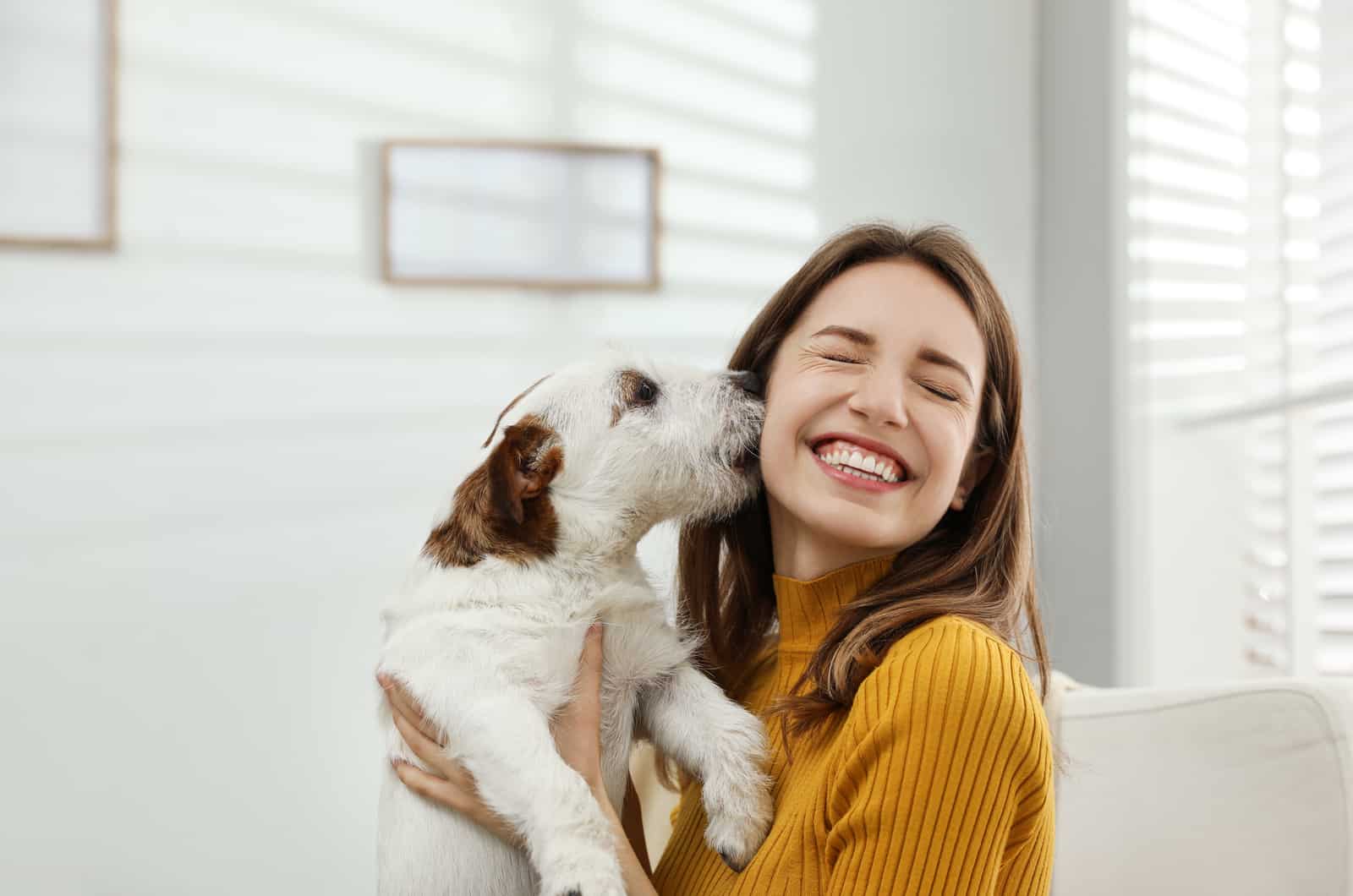
As we’ve learned, there are several reasons why dogs get clingy. To make things more interesting, they can overlap, sometimes making it difficult to determine a single cause.
However, in most cases, it’s simply a matter of your dog going through a phase. Because they’re so sensitive, something might unsettle them for a time, but they’ll soon get over it. Millions of dog owners know only too well the pain of seeing their beloved pooch shaking uncontrollably when fireworks are set off in the neighborhood or when a storm hits and the rumbling thunder sends them scurrying for a dark corner. Events like this prove how vulnerable our pets are to certain conditions, but these should pass.
Likewise, if you have to place your dog in boarding kennels while you go away, they may cling to you for a couple of weeks afterward as they fear that they’ll be separated from you again, especially the first time you use a kennel.
In its way, clinginess can be endearing. After all, it’s sweet that your dog is giving you more love and affection. But when it becomes a problem, you need to take action, as it could be a sign that something is wrong.
Many dog owners have described how their pets suddenly started following them everywhere. Dogs that have happily slept in their beds for years will suddenly climb onto their owner’s beds in the night or paw at them for attention at any time of the night or day. Whatever the reason, your dog is trying to tell you something.
If this clingy behavior continues, and you can’t find the cause, take your dog to the vet for a check-up. The vet might find that there’s a treatable medical problem, and your pooch will soon be back to normal. Of course, it may not be such good news. If your dog is diagnosed with CDS, then your vet will guide you through what happens next. The best you can do is give them the care and attention they need for their remaining time with you, but you need to prepare yourself for the possibility of having them euthanized if they become too sick and are suffering badly.
So, if you believe that your dog’s clinginess is a problem, you first need to rule out any medical problem. Then you need to consider whether it’s separation anxiety, which is the biggest cause of clingy behavior. Happily, there are ways of overcoming this in most cases, as we mentioned above.
For extreme cases, you’ll need help from the vet in the form of calming medication. You could always seek advice from an animal behaviorist. Otherwise, you need to change your own behavior and gradually train your dog to accept your absence.
You might need to try several different approaches, such as changing where your dog sleeps. If they are used to sleeping in your room, try gradually moving their bed away over a few nights. You could try desensitizing them to your movements so they don’t get overexcited when you come and go. You could increase their exercise and mental stimulation, helping them to use up their energy (bored dogs can be very clingy and destructive!).
Finally, you could try creating a safe, quiet space where they feel happy and comfortable.
Whatever you do, always be patient and never get angry, as this will be counterproductive and undo all your hard work.
Above all, continue to show them love and affection. When all is said and done, they just want to be near you!

